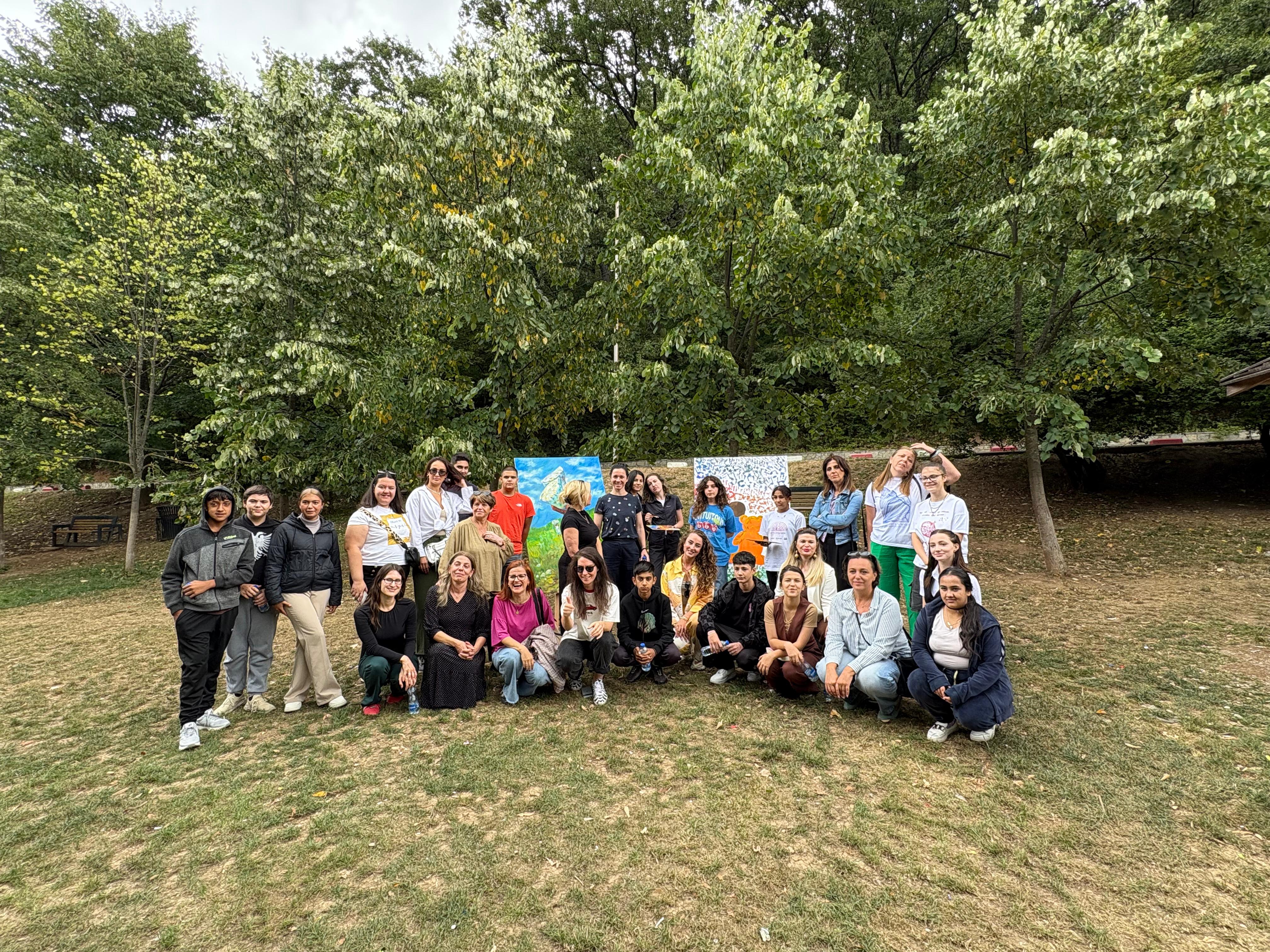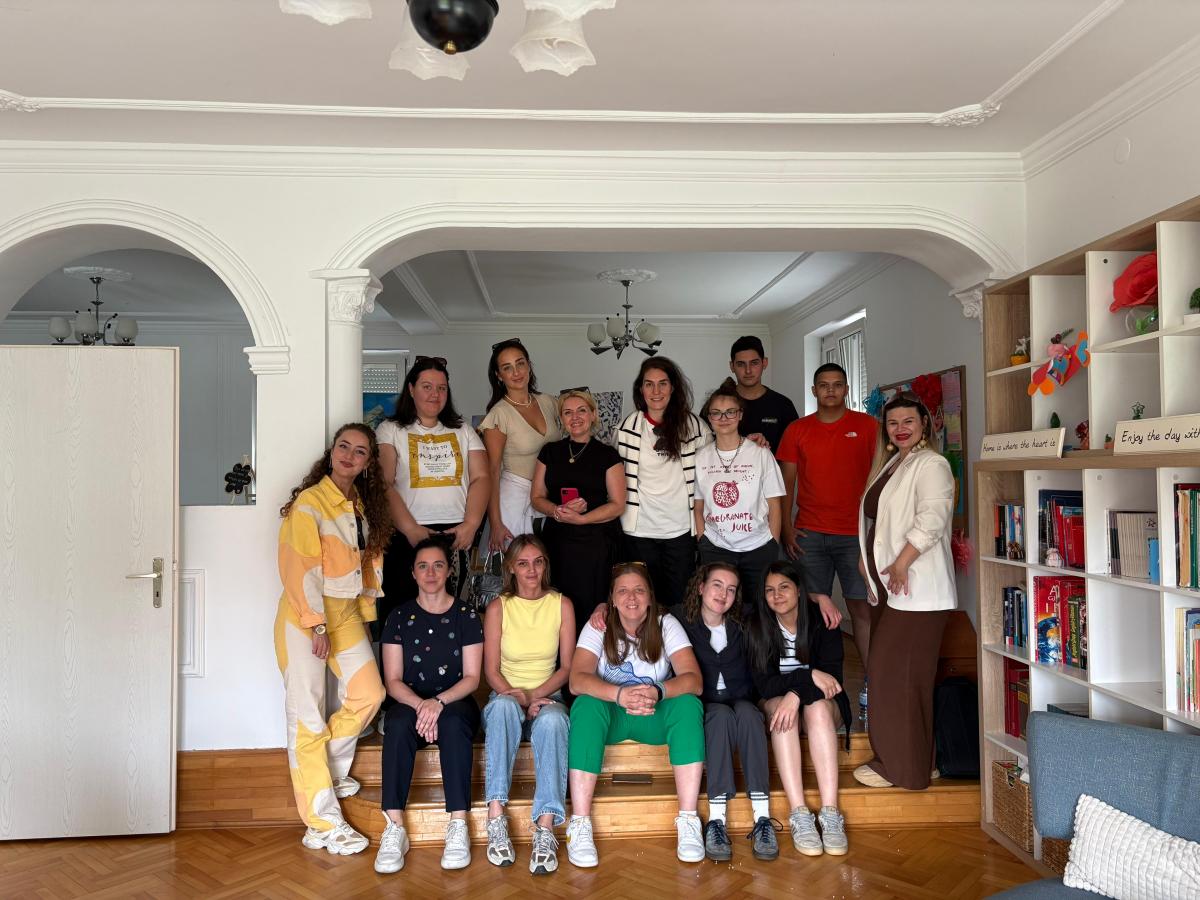Hotline: +381 61 63 84 071
Fighting human trafficking through the eyes of youth: Insights from a study visit to Prishtina

Fighting human trafficking through the eyes of youth: Insights from a study visit to Prishtina
As part of the project "Bridge – a step forward in protecting women and girls victims of violence in Kosovo* and Serbia”, implemented by NGO Atina, in partnership with NGO PVPT from Prishtina, and with the support of the European Union, a study visit to Kosovo was organized from July 29 to 31, 2025. The participants were high school and university students from Bujanovac and Vranje, brought together by a common goal: to gain a deeper understanding of the mechanisms for protecting women and girls from violence and human trafficking, and to explore how art and sport can serve as powerful tools for empowerment and social change. Upon arriving in Prishtina, the youth had the opportunity to get to know the city and each other through a guided tour, helping establish a foundation for open communication, exchange, and mutual trust.
The second day of the visit was dedicated to marking World Day against trafficking in Persons. In the natural surroundings of Gërmia Park, participants met with representatives of PVPT and Terre des Hommes, as well as youth from Kosovo. Terre des Hommes presented their work with children who live and work on the streets, with special focus on children from Roma, Egyptian, and Ashkali communities. Their approach, rooted in education, prevention, and support, aims to keep children in school and protect them from exploitation. These stories left a lasting impression on the participants, demonstrating how systemic and empathetic support can lead to tangible, life-changing outcomes for the most vulnerable individuals.

Later that day, a working meeting was held with PVPT, one of the key actors in the fight against human trafficking in Kosovo and a long-standing partner of NGO Atina. The youth had the chance to learn more about the complex nature of human trafficking, as well as the practical work with survivors. PVPT representatives emphasized that the rehabilitation process is neither linear nor universal, but must be carefully tailored to each individual's specific needs. Particularly inspiring were the artistic and psychosocial activities conducted with women and girls, including art therapy, group discussions, yoga, and meditation, which provided a safe space for expression, reflection, and empowerment.
A special focus of the discussion was placed on the role of youth in conducting preventive activities and spreading awareness about human trafficking in their communities.
On the third day of the study visit, participants visited the women’s football club "Prishtina", where club manager Armenda Filipaj and senior team members welcomed them. The club was founded to promote gender equality and human rights through sport, and during the visit, it was highlighted how sport can play a crucial role in addressing social challenges.
Particular attention was given to how football can bring together girls from Serbian and Albanian communities, connecting them through shared values and team spirit, despite existing political and cultural barriers. It was also emphasized how important it is to empower girls to engage in sports that are traditionally perceived as “male”, as sports help them develop self-confidence, leadership skills, and a sense of belonging. Football Club Prishtina is a partner of NGO Atina in the "Sport Together" project, which uses sport as a tool to build bridges between communities, as well as to empower girls personally.
At the end of the visit, the young participants from Serbia shared their reflections and impressions with the organizers, highlighting how meaningful the experience had been – not only because of the insights into the issue of human trafficking and work with survivors, but also because of the opportunity to spend time in Kosovo. Through conversations with peers, representatives of local organizations, and joint activities, they experienced firsthand the importance of personal contact in breaking down barriers and building genuine understanding.
The study visit enabled them to broaden their perspectives, understand the issue of human trafficking within the broader context of vulnerability, poverty, discrimination, and systemic failures, and feel the power of collective action for a dignified and safe life for all.
That is precisely why initiatives like this are invaluable – they offer youth not just information, but transformative experiences that change their view of the world and motivate them to become agents of change in their own communities.












 FACEBOOK
FACEBOOK TWITTER
TWITTER YOUTUBE
YOUTUBE